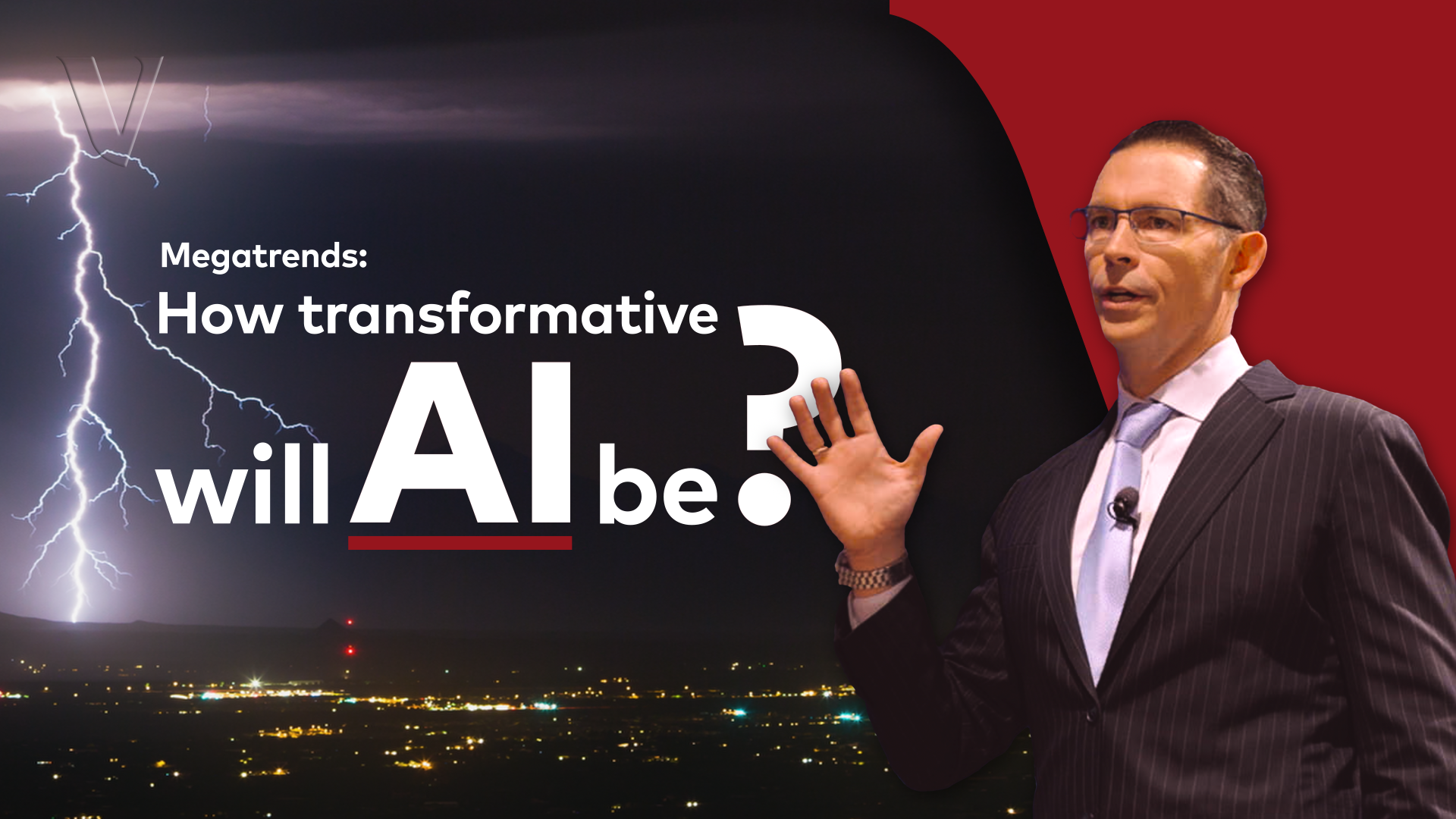Expert insight
Joe Davis: AI as a general-purpose technology
June 25, 2024
New Vanguard research explores the importance of general-purpose technologies (GPTs) in driving periods of above-trend economic growth over the last 130-plus years. Our Megatrends research paper AI, Demographics, and the U.S. Economy suggests that artificial intelligence (AI) could prove to be the next GPT.
Here, Vanguard Global Chief Economist Joe Davis discusses social media and electricity—and the borderline between innovative and transformative technologies that AI could cross.


You have certain cookies disabled on the Vanguard site.
In order to watch this video, you must agree to the use of cookies provided by YouTube.
Click to permit these cookies and watch the video.
Video length: 2 minutes 16 seconds

Read the transcript
Joe Davis: Could AI be as transformative as electricity? Can it change how we live? Health, happiness, and progress.
Notes: All investing is subject to risk, including the possible loss of the money you invest.